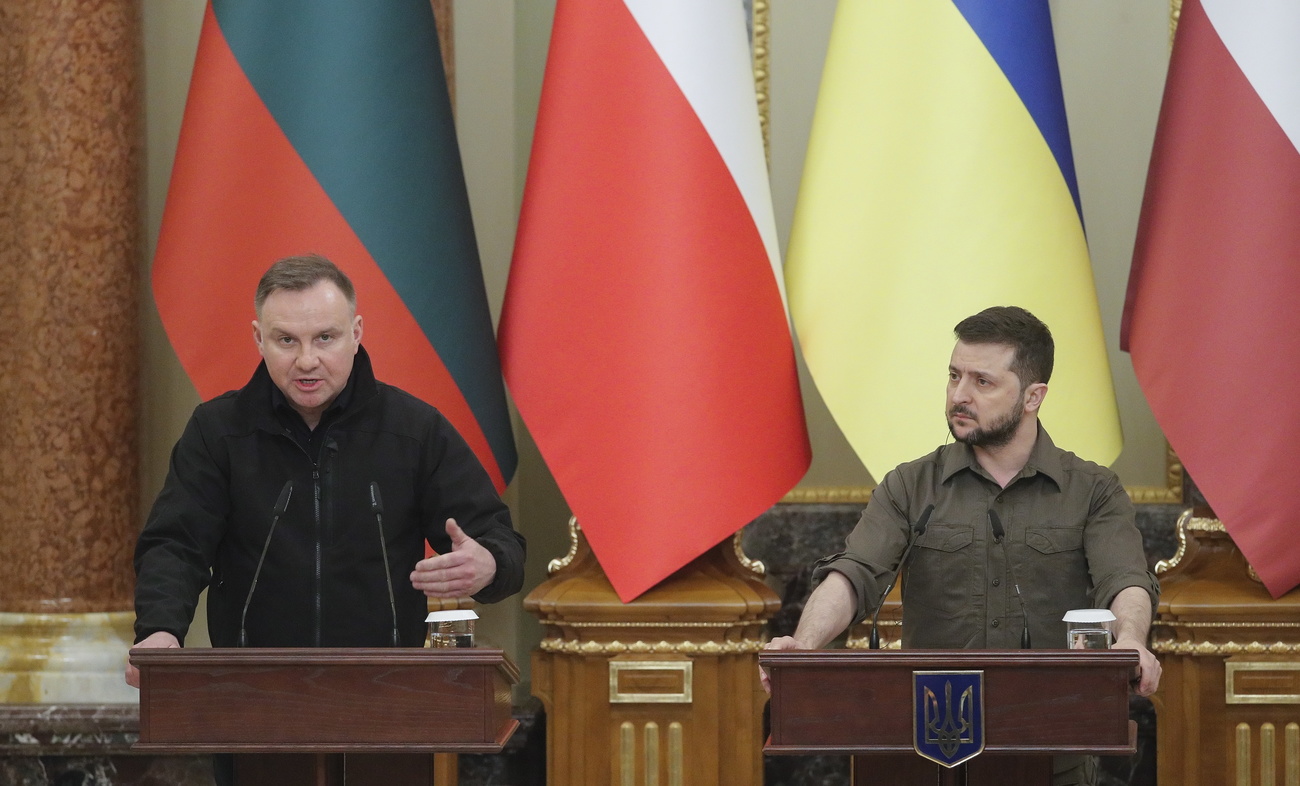
Various leaders confirm participation at Ukraine peace conference

The presidents of Poland, Finland, and Latvia as well as the prime ministers of Spain and Belgium will attend the Ukraine conference on the Bürgenstock in canton Nidwalden in June, the Swiss foreign ministry has said.
Switzerland is pleased that some countries have already publicly announced their participation at the June 15-16 event, said Nicolas Bideau, Head of Communications at the Swiss foreign ministry, when contacted by the Keystone-SDA news agency on Wednesday.
On the social network X (formerly Twitter), the foreign ministry posted messages from the Polish, Finnish and Latvian presidents, Andrzej Duda, Alexander Stubb and Edgars Rinkevics, in which they confirmed their participation. Stubb wrote that he hoped as many colleagues as possible would take part, and that he will continue these discussions in Berlin on Thursday.
Duda meanwhile wrote that he had informed Ukrainian President Volodymyr Zelensky of his participation in a telephone conversation. Spanish Prime Minister Pedro Sanchez also stated on X that he had agreed with Zelensky on the importance of the Ukraine peace conference and would also take part in it.
According to a press release by the Ukrainian government, Belgian Prime Minister Alexander De Croo also announced his attendance to Zelensky. Italian Prime Minister Giorgia Meloni already confirmed her participation to Swiss President Viola Amherd on Friday and spoke of a “very important initiative”.
More than 160 invitations
The Swiss government announced on May 2 that it had invited more than 160 delegations to the conference, including members of the G7, the G20, the BRICS, numerous other countries from all continents as well as the EU, three international organisations (UN, OSCE and Council of Europe) and two church representatives (the Vatican and the Ecumenical Patriarch of Constantinople).
The final list of participating states will be published shortly before the start of the conference.
Adapted from German by DeepL/dkk/dos
This news story has been written and carefully fact-checked by an external editorial team. At SWI swissinfo.ch we select the most relevant news for an international audience and use automatic translation tools such as DeepL to translate it into English. Providing you with automatically translated news gives us the time to write more in-depth articles.
If you want to know more about how we work, have a look here, and if you have feedback on this news story please write to english@swissinfo.ch.

In compliance with the JTI standards
More: SWI swissinfo.ch certified by the Journalism Trust Initiative

























You can find an overview of ongoing debates with our journalists here . Please join us!
If you want to start a conversation about a topic raised in this article or want to report factual errors, email us at english@swissinfo.ch.